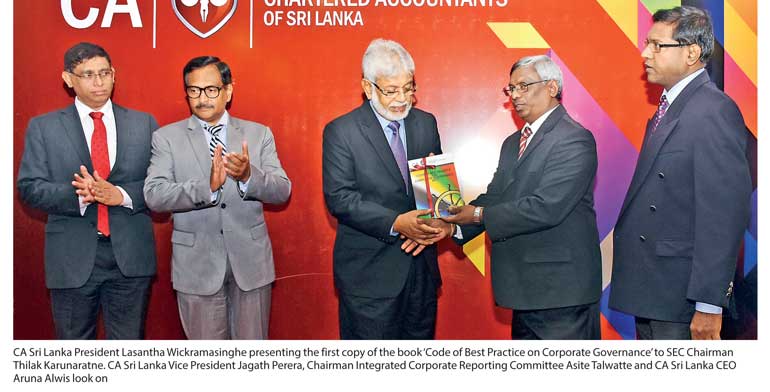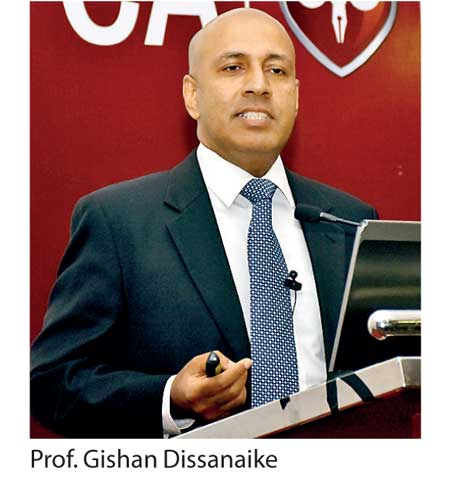Friday Feb 20, 2026
Friday Feb 20, 2026
Thursday, 14 December 2017 00:00 - - {{hitsCtrl.values.hits}}


By Skandha Gunasekara
The Code of Best Practice on Corporate Governance 2017 was released yesterday by the Institute of Chartered Accountants of Sri Lanka (CASL).
The code seeks to outline a guide for the corporate sector to follow in order to streamline and safeguard ethical practices in financial reporting.
The code was formulated with the support of the Securities Exchange Commission by a team headed by Asitha Talwatte.
The code gives recommendations on a wide range of issues including company directors, director remunerations, relations with shareholders, accountability and audit, institutional investors, other investors, the internet and cyber security, environment, society and government.
Prof. Barry J Cooper, Head of the School of Accounting, Economics and Finance at Deakin University, Melbourne and the former President of the Association of Chartered Certified Accountants (ACCA), giving his keynote address prior to the launch of the code, noted that the Code of Best Practice on Governance released yesterday was on par with global standards.
Touching on the ethical practices being followed by corporations, Prof. Cooper pointed out that the culture of a particular company had a significant impact on employee behaviour.
“The attitude and behaviour of the head of the company has a huge effect on its employees. If the Chairman of the company is corrupt and follows unethical practices such an attitude has a trickledown effect on the employees and staff of the company. If the company chief is only interested in profits, there is a good possibility that his employees will disregard ethical practices to increase profits.”
Meanwhile, Financial Economist and Adam Smith Professorial Chair in Corporate Governance at Cambridge University, Gishan Dissanayake, remarked that the system of ‘Comply and Explain’ of the code was appropriate for Sri Lanka instead of mandatory Government regulation of the corporate sector.
“Mandatory compliance of the Code of Best Practices for Corporate Governance would entail the judicial system taking legal action against errant corporations. However, in a country such as Sri Lanka where the Judiciary is slow in its proceedings, it’s more suitable to adopt the system of ‘Comply and Explain’ where non-conformity to the code would result in that particular corporation being automatically reprimanded by the markets and stocks.”
Since its last update in 2013, several key changes have been made to the code including observations and advice for board composition, board meetings, the role of the board, audit committee and corporate reporting.